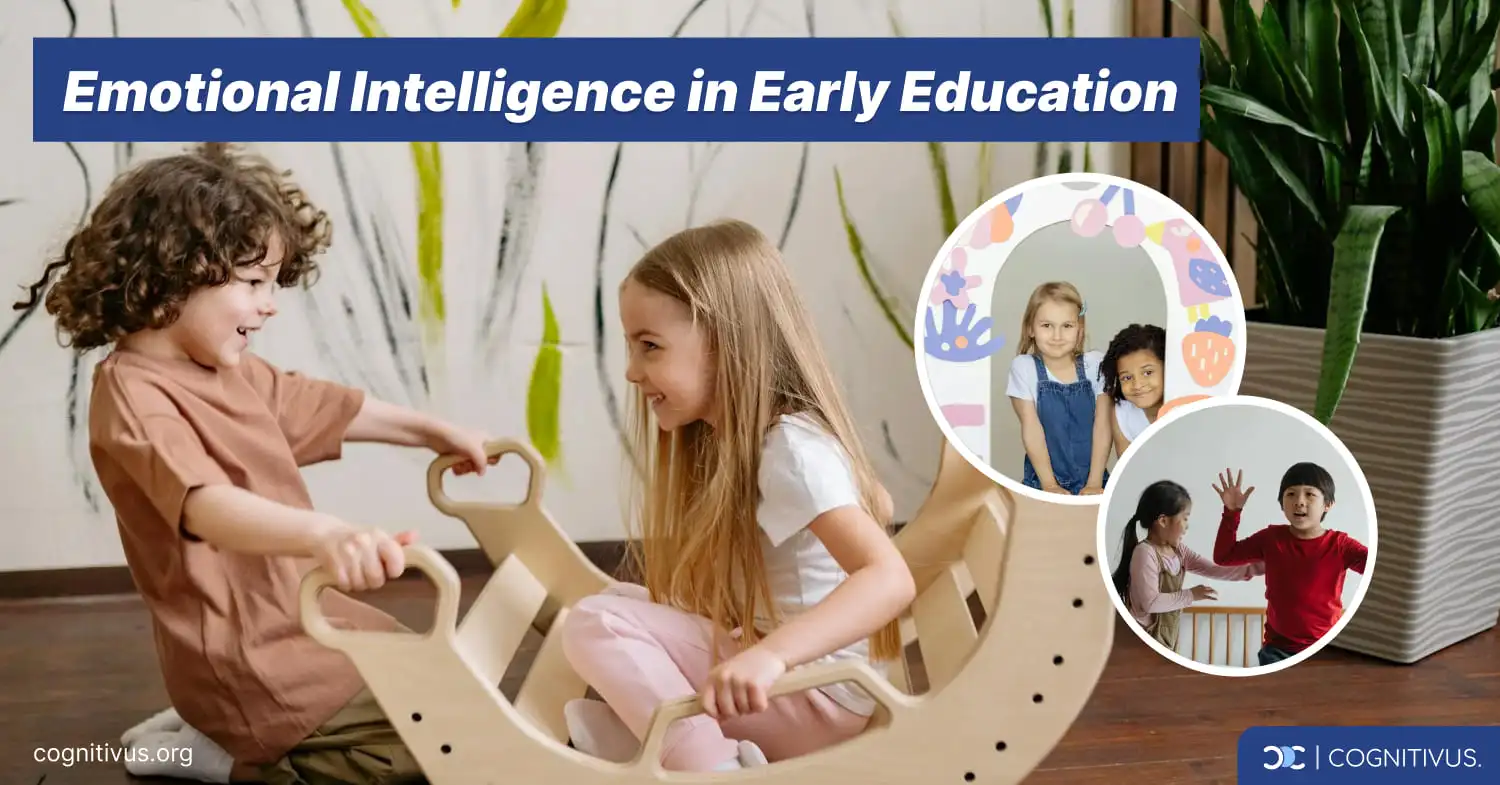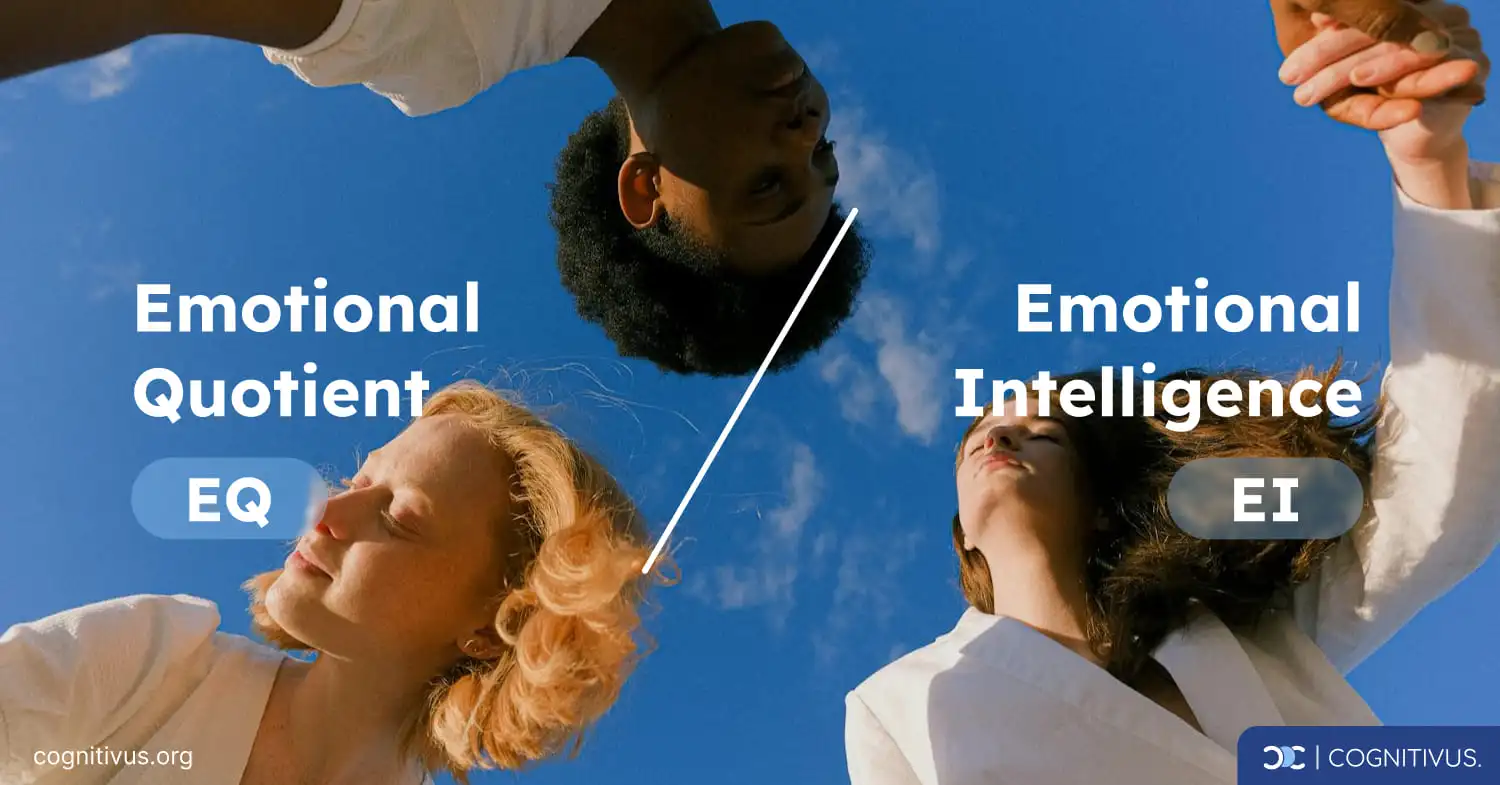Emotional Intelligence plays such a significant role in our relationships, careers, and everyday lives. Sometimes, it’s referred to as ‘EQ’. But is it really the same? Today, we’ll make the difference clear.
1. An Introduction to Emotional Intelligence and Emotional Quotient
Have you ever noticed how you react when you feel angry, anxious, or frustrated? Recognizing these triggers and managing your reactions is what Emotional Intelligence is all about.
What is Emotional Intelligence (EI)?
Well-known psychologist, Daniel Goleman, was the first to popularize the term Emotional Intelligence. Based on Goleman’s theory, Emotional Intelligence (abbreviated ‘EI’) is about how well you understand and control your own feelings in addition to recognizing and responding to other people’s emotions. It’s an essential skill you need to handle life’s ups and downs.
For example, think of a moment when you or someone else managed to ease a tense situation or remain strong and focused despite a challenge. That was EI at work.
Goleman’s theory breaks EI into four domains: self-awareness, self-management, social awareness, and relationship management, which include 12 competencies like emotional self-awareness, empathy, and teamwork.
What is Emotional Quotient (EQ)?
The emotional quotient (EQ) measures your ability to manage your emotions and understand others' emotions. It's a score that reflects your emotional intelligence. An EQ score helps determine how well you handle emotions, exercise self-control, and communicate mindfully. In short, EQ is how your Emotional Intelligence get measured.
Someone with a high EQ connects well with others because they show empathy and good social skills. They can communicate clearly and effectively because they pick up on body language and facial expressions, which are important emotional and social cues.

In contrast, a low EQ indicates challenges with emotional self-regulation and relationship building. A low EQ doesn’t reflect on someone’s overall intelligence, which is multifaceted. It’s entirely possible for someone to have a high IQ and low EQ, or to excel in other forms of intelligence, such as musical intelligence, linguistic intelligence or bodily-kinesthetic intelligence (the ability to use one's body effectively, such as in dancing or sports).
2. The Role of Emotional Intelligence and EQ Beyond IQ
Traditionally, IQ (Intelligence Quotient) was seen as the main indicator of success, especially in leadership and business. However, recent research has highlighted the importance of emotional intelligence (EI) in achieving career goals. Emotional intelligence aids in communication, adaptability, and relationship-building, all essential for workplace success.
While IQ measures academic abilities, EQ assesses how well you handle emotions, make friends, and manage difficult situations. People with high EQ often perform better under pressure and resolve conflicts more effectively.
Studies that compare EQ to IQ suggest that EQ might be a better predictor of success than IQ because it helps manage stress, empathize with others, and navigate social complexities.
3. How Emotional Intelligence Supports Personal and Professional Growth
Understanding how Emotional Intelligence (EI) impacts both personal and professional aspects of life is crucial. Here’s a look at its benefits and how it can be improved.
Impact on personal life
High Emotional Intelligence allows you to be aware of your feelings at any moment, giving you control over your emotions. This awareness helps you understand others' emotions, making social interactions smoother. For example, you can engage in meaningful conversations or recognize when to end an unproductive one.
EI helps you manage stress, anxiety, and other negative emotions, making you less reactive and more supportive of those around you. Imagine coming home exhausted after a long day. By recognizing your need for rest, you can ask for help with chores. This prevents unnecessary conflicts and keeps the environment peaceful.
Being emotionally self-aware also enables you to understand others' perspectives, reducing misunderstandings and resolving disagreements calmly. This skill significantly improves your mental health and overall well-being.

Impact on professional life
In the workplace, strong Emotional Intelligence is invaluable. It enhances communication and teamwork, making collaboration on projects, customer interactions, and leadership more effective. For example, if a coworker is having a tough day, you can recognize their distress and offer support, leading to a more harmonious work environment.
Emotional Intelligence is even more essential to leadership. Good leaders know that success depends not only on meeting objectives but also on connecting with and understanding their team members. This connection fosters a supportive and productive work atmosphere.
Why EQ is important in early education
Teaching Emotional Intelligence to children has far-reaching effects on their relationships, goals, and social interactions. Social-emotional learning (SEL) is a rewarding strategy that focuses on helping children manage their emotions, understand others' feelings, and solve problems.

SEL teaches real-life skills that children will use throughout their lives, promoting healthier, more constructive, and positive thinking. The Yale Center for Emotional Intelligence found that increasing EQ in children strengthens their social and emotional development, helping them cope with challenges at school and home.
Learning these skills early helps children lead healthier, more successful lives, enabling them to get along with others, understand their own feelings, and perform better academically.



